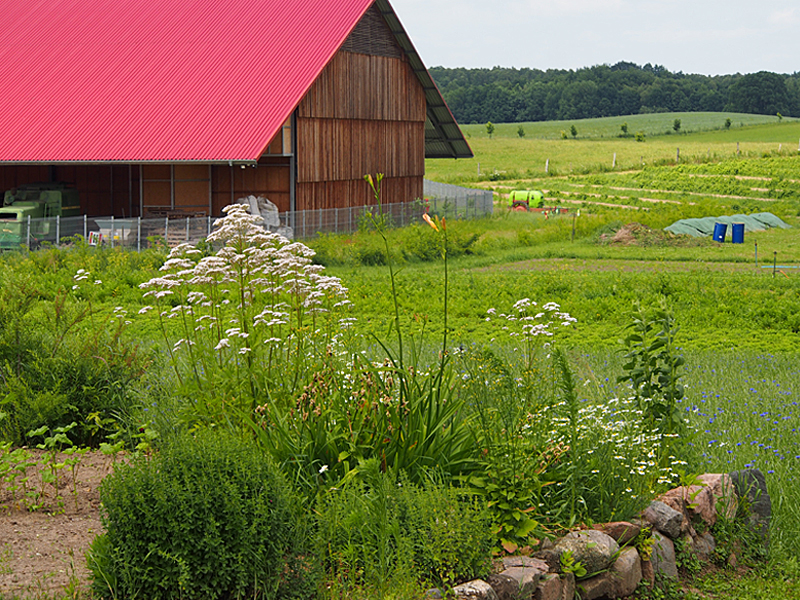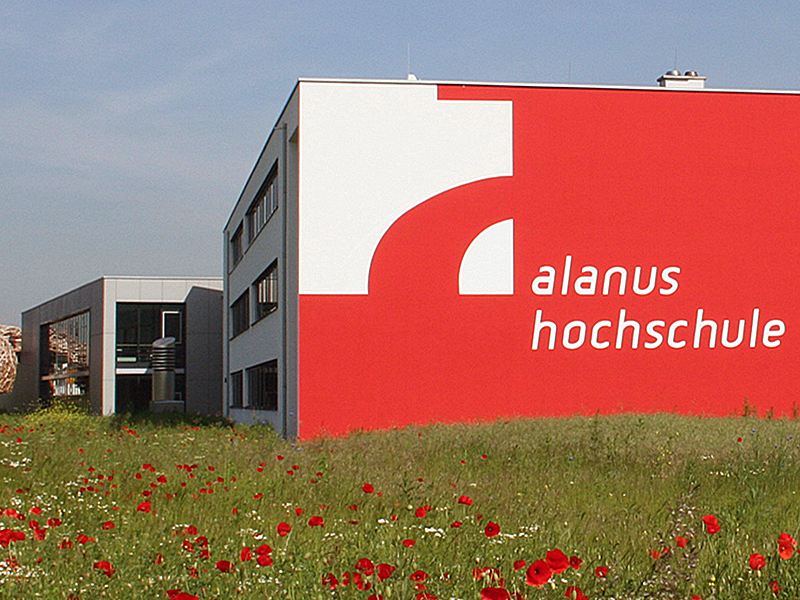What We Support
Focal Areas
Through intensive contact “in the field” – as founder Dr. h. c. Peter Schnell puts it – we can learn what kinds of wants, deficits and general development needs exist “out there” and which otherwise do not come directly to us in the form of grant applications.
From the earliest days of the foundation we have, based on our project work, developed our own motivating impulses, which are still expressed today in the foundation’s commitment to certain key locations and key themes.
It is our aim to develop these strategically into cross-area thematic clusters.
Anthroposophical Medicine
Anthroposophical Medicine
Focused on the Patient as an Individual
The paths to healing and health are as diverse as human beings themselves. For each person, health – and disease – is individual. Anthroposophical medicine is based on the assumption that the individual consists of the interplay of body, soul, and spirit. Hence, an ill person is much more than the sum of his or her symptoms.
Anthroposophical medicine is not an “alternative medicine” that wants to replace conventional medicine altogether – rather, it very intentionally aims to expand it. All elements of conventional medicine can still be used, both in diagnostics and therapy. As a result of this approach, anthroposophical doctors obtain a traditional medical degree and undergo traditional medical training and residency. But they also go beyond this: anthroposophical medicine expands medicine to include insights from the field of the humanities. These insights can be traced back to Rudolf Steiner, the founder of anthroposophy, and the doctor Ita Wegman, co-founder with Steiner of anthroposophical medicine.
Anthroposophical medicine is based on the foundational assumption that an illness is more than a randomly occurring functional failure. Rather, illness is understood as processes that can take the form of physical or emotional disturbances or changes that appear when the mutual relationships between a patient’s body, soul, and spirit are no longer harmonious. As a result, anthroposophical medicine diagnoses and treats illnesses on an individual basis.
(Source: Dachverband Anthroposophische Medizin in Deutschland)
Motivation and Beginnings
Our motivation is to make anthroposophical medicine, as a complement to and extension of conventional medicine, accessible to as wide a circle of patients as possible. Many years ago, we started supporting the academization of anthroposophical medicine.
At that time, although patients often expressed interest in complementary approaches, there were too few doctors to fill this need. In addition, complementary medicine had been, as an experiential approach to healing, traditionally excluded from medical research. This made it difficult to establish therapies based on anthroposophical medicine in the health care system – for example, to get such therapies covered by health insurance.
In light of this situation, we started funding projects in anthroposophical medicine in 2008, primarily with the goal of establishing anthroposophical medicine as equal to and in conversation with conventional medicine. At that time, we aimed to establish a basis for scientific recognition and greater representation at universities, as well as lay a foundation for academic research in this area. We therefore began supporting post-doctoral researchers in the field.
Milestones and Support
Since 2008, we have funded 11 post-doctoral research projects (the German Habilitation). With our support, it was possible to establish academic positions or professorships in anthroposophical medicine at schools and universities in Witten/Herdecke, Berlin, and Bern.
Furthermore, we also support the university presence of anthroposophical medicine by funding research institutes in Freiburg (Institute for Applied Epistemology and Medical Methodology, IFAEMM); Berlin (Havelhöhe Research Institute, FIH); and Alanus Hochschule (Research Institute for Creative Arts Therapies, RIArT). Clinical research is supported with a chair of Child and Adolescent Psychiatry as well as two clinical professorships, one in Neuromedicine and one in Pediatrics, at the Herdecke Community Hospital (Gemeinschaftskrankenhaus Herdecke).
The foundation supports the education and training of anthroposophical doctors in Witten/Herdecke (IBAM) and in Filderstadt (Eugen-Kolisko-Akademie in Filderstadt). Doctors in residency interested in anthroposophical medicine can obtain support through the Albertus-Magnus fellowship. In addition, we have made medium and small grants to institutes, affiliated institutes, outpatient clinics, research projects, and other endeavours.
Securing long-term funding for endowed chairs and professorships remains a considerable challenge. It is rarely possible to secure funding for such positions within the university budget itself. These commitments therefore limit our abilities to fund other projects, because the long-term funding of these endowed chairs ties up our resources.
Juchowo Village community in Poland
Juchowo Village community in Poland
Inspiring the Healing of an Entire Region

In northwestern Poland, about 90 kilometers from the Baltic Sea coast, the Stanisław Karłowski foundation’s Juchowo Village Community has existed since 2001. With considerable pioneer spirit and practical knowledge, its members have established a working farm on around 1,900 hectares of land. But the community’s purpose extends far beyond biodynamic agriculture: in addition to reviving and rehabilitating the soil, social community plays a central role at Juchowo. The farm hosts diverse cultural and pedagogical events, and it has also become an important location for integration and social therapy in Poland.
(See: www.juchowofarm.org)
Motivation and Beginnings
“Sometimes fate presents us with a task that cannot be avoided” – this is how Software AG Foundation (SAGST) board member Achim Grenz describes the beginnings of the long-term support partnership between farm and foundation. The biggest hurdle at the start of the project was restoring the usability of the soil, which had more or less lain fallow for over 10 years. That meant starting “not at zero, but at less than zero.”
That’s why we, together with other supporters, decided to support the Stanisław Karłowski foundation to enable the purchase of land, buildings, and machines to ensure the viability of biodynamic agriculture and to permanently protect the property from speculators.
In other areas, as well, we provided financial support and consulting for development of the community and created structures for the educational and socio-therapeutic work that goes on there today.
Milestones and Support
Today, Juchowo is a lively farm complex with numerous research and teaching activities that provides a livelihood for around 100 employees, including many under socio-therapeutic care. Furthermore, the farm was recognized as a model operation whose agricultural practices may help to slow the over-fertilization of the Baltic Sea. Juchowo also provides important experiential input for the BERAS network (Building Ecological Regenerative Agriculture and Societies) of the Baltic Sea-neighboring countries, which is financed in part by the EU.
Then and now, we exclusively support the Juchowo community’s charitable fields of activity: research, nature preservation, and training, as well as education and social therapy. In the course of our partnership, we have reached important milestones in these areas. These include important research insights in cattle breeding, nature education programs for children and young people from Poland and Germany, and a workshop for people with disabilities, which we see as a crowning achievement. Here, starting at the end of 2018, 50 individuals with disabilities as well as 16 employees in management, care, and administration will work together to produce health-bringing products for the region. But the heart of the project – which was recognized as an “exemplary project” in a national competition in Poland – is to support the personal and individual development of the people involved and to enable a high quality of life and positive working conditions.
Alanus University in Alfter near Bonn
Alanus University in Alfter near Bonn
Educating the Whole Human Being

At Alanus University of Arts and Social Sciences, we focus on holistic education. In addition to a sound basis in technical subjects, we attach great importance to the personal development of our students regarding their own perception and understanding of their individual contribution to society. This idea lies at the heart of our Bachelor's, Diplom and Master's programmes, doctoral studies, research, artistic development projects, and the development of the university as a whole.
As a state-recognised university of the arts with two locations, one in Alfter on the outskirts of Bonn (NRW) and one in Mannheim, we offer courses in the fields of fine and performing arts, architecture, art therapy, education, business and philosophy. The unique combination of science and art encourages encounters between the disciplines and enables students to continually broaden their horizons. This is achieved, through interdisciplinary projects and the Studium Generale (General Studies), which is an integral component of every degree programme. In these supplementary lectures and seminars, students acquire a fundamental education in cultural studies and the humanities aimed at promoting the development of their own attitudes and outlook. Through work in small groups, with intensive exchange between lecturers and students, we also create space for personal, scientific and artistic development.
In this sense, the educational concept of Alanus University focuses on the person as a whole. We thus embrace the humanistic ideals of Schiller and Humboldt while also following Rudolf Steiner’s anthroposophical idea of “educating the whole human being”.
(Source: Alanus University)
Motivations and Beginnings
The strategic partnership between foundation and university began in 2002 as the school – at that time still an independent art school with mainly local and regional importance – approached Software AG Foundation (SAGST) with a grant application.
Then and today, we saw in Alfter a location where spiritual perspectives, such as those put forth in anthroposophical humanities, could be taken seriously in critical scientific dialog. We had a vision that we could use the school to send a signal to the educational and political spheres regarding anthroposophy; we dreamed of a school where reform education and Waldorf education, anthroposophical curative education, and art therapies would be equal discussion partners with current pedagogical science and research.
Milestones and Support
On the path to realizing this vision, we first had to establish an institutional framework that, in a second step, could be provided with suitable content. In addition to achieving state recognition in 2002, the school’s most important milestones have been:
-
2004: Alanus Foundation founded
-
2005-2006: Economics and Education departments established
-
2007: State exams (Staatsexamen) in Art Education
-
2009: New “Campus II” opened
-
2010: Department of Education achieved institutional accreditation and authorization to award doctoral degrees
-
2014: University Center opened in Mannheim with the name “Alanus University – Institute for Waldorf Education, Inclusion, and Interculturality”
-
2017: 10-fold increase in students (from 150 to 1,500) and 15-fold increase in employees (from 14 to 230) since 2002
Milestones like these – combined with an expanding range of degree programs and a growing number of students and employees – make clear: this growth process was not only fast and dynamic, but also full of challenges for both school and supporter. For example, structures from the pioneering phase had to be adapted to keep pace with the school’s overall development.
In light of these changes, the support partnership with our foundation has developed with time, as well. In close conversation with the school’s administrators, we sharpened the focus of our support to orient ourselves more clearly towards the foundation’s charter and what we as a foundation want to enable, based on our own convictions and motivations, in Alfter and elsewhere.
Our aims include greater acceptance of art therapies, special education, and Waldorf education in academia and society – but above all, the sustainable establishment of institutions for special needs and Waldorf education. In addition to supporting research in these areas, we attach special importance to training and educating teachers and educators as well as to further developing art therapies as a means of healing in anthroposophical medicine, which we want to make accessible to a wider audience.
Focusing on the spirit of the foundation’s charter led to the development of a new support model, which entailed some difficult decisions and reductions. We were not able to continue supporting all of the areas that we had supported at the beginning, and for some areas it was not possible to quickly find new supporters or sponsors. At the same time, Alanus University has been and remains a key location for SAGST: not only because we were able to jointly bring to life some of our most essential ideas, but also because Alfter has been such an important source of learning for our own work as a foundation.

